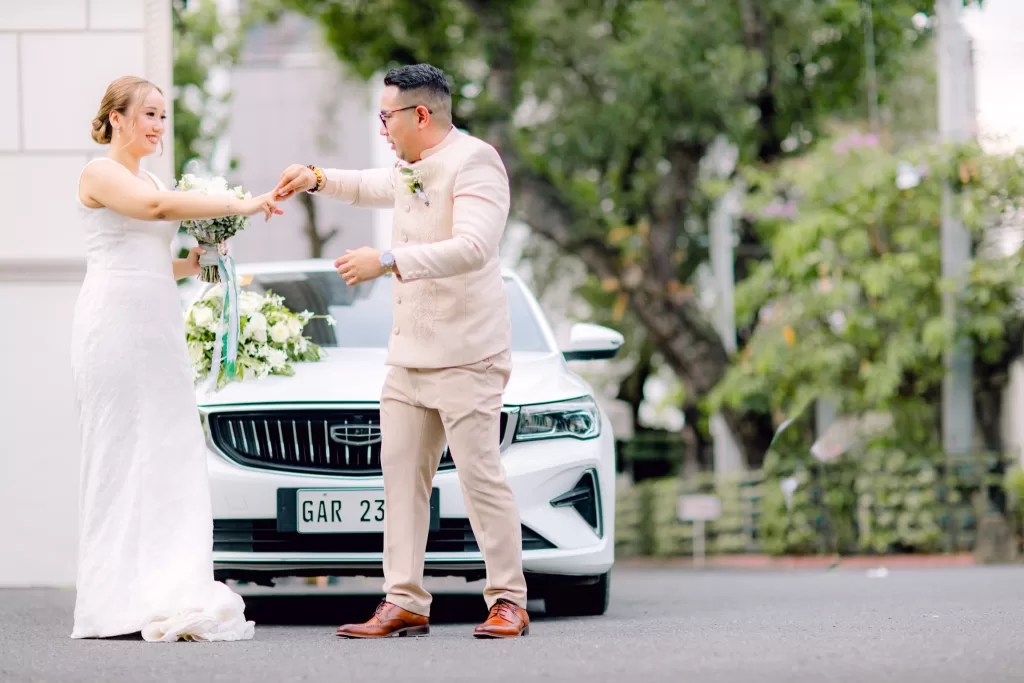Wedding planning is an exciting yet demanding journey that can easily become overwhelming. With so many details to manage, from venue selection to guest lists, it’s no surprise that many couples feel stressed and anxious during the process. This post is here to help you navigate the complexities of wedding planning with ease, offering practical strategies to stay organized, maintain your peace of mind, and handle those inevitable last-minute changes.
Understanding the Overwhelm: Why Wedding Planning Can Feel So Daunting
The sheer number of tasks involved in planning a wedding is enough to overwhelm anyone. From coordinating vendors to managing timelines, it’s easy to feel like you’re juggling too many things at once. The pressure to make everything perfect only adds to the stress.
Common Causes of Overwhelm:
- Decision Fatigue: Constantly making decisions can wear you down, leading to frustration and anxiety.
- Time Constraints: Balancing wedding planning with your everyday life can make time management difficult.
- High Expectations: The desire to have a perfect wedding can lead to unnecessary pressure and stress.
- Fear of Last-Minute Changes: Worrying about unexpected issues on the wedding day can increase anxiety.
Practical Strategies to Stay Calm and Organized

Now that we understand why wedding planning can be overwhelming, let’s explore some actionable steps you can take to stay organized and reduce stress.
- Create a Detailed Wedding Timeline
- Why It Works: A timeline helps break down the planning process into manageable steps, ensuring you stay on track.
- How to Do It: Start by setting a wedding date and working backward, creating deadlines for each major task. Tools like Google Calendar or specialized wedding planning apps can be invaluable.
- Prioritize Your Tasks
- Why It Works: Focusing on the most important tasks first helps prevent last-minute stress.
- How to Do It: Identify the top three tasks you need to accomplish each week and focus on those. This could include booking a venue, sending out invitations, or meeting with vendors.
- Delegate Responsibilities
- Why It Works: You don’t have to do everything yourself. Delegating tasks to trusted friends, family, or a wedding planner can significantly lighten your load.
- How to Do It: Assign specific tasks to people you trust. For example, you might ask a friend to help with DIY decor or enlist a family member to manage RSVPs.
- Use a Wedding Planning Checklist
- Why It Works: A checklist ensures that no detail is overlooked, helping you stay organized from start to finish.
- How to Do It: Download our free wedding planning checklist to guide you through every step of the process, from choosing a venue to finalizing the guest list.
- Schedule “Me Time”
- Why It Works: Taking time for yourself helps prevent burnout and keeps you refreshed.
- How to Do It: Set aside at least one day a week where you do something non-wedding related. Whether it’s a spa day, a workout, or just reading a book, make sure you’re taking care of your well-being.
Handling Last-Minute Wedding Changes
Despite your best planning efforts, last-minute changes can still occur. Here’s how to handle them with grace:
1. Stay Calm and Breathe
It might sound cliché, but taking a deep breath really helps. Remember, your wedding is about celebrating your love, not perfection.
2. Have a Backup Plan
For every major aspect of your wedding, consider a Plan B:
- Outdoor ceremony? Have an indoor option ready.
- Worried about vendor no-shows? Keep a list of emergency contacts.
- Concerned about weather? Rent clear umbrellas for a rainy day photo op.
3. Embrace the Unexpected
Sometimes, last-minute changes lead to beautiful, unplanned moments. Be open to new possibilities!
“Having a dedicated team to manage last-minute changes was a lifesaver. NM Event Planners thought of everything!” – Sarah and John, married May 2022
Common Wedding Day Emergencies and Solutions
Here are some frequent issues we’ve encountered and how to handle them:
- Decision Fatigue: Constantly making decisions can wear you down, leading to frustration and anxiety. From choosing color schemes to selecting menu items, the sheer volume of choices can be exhausting.
- Time Constraints: Balancing wedding planning with your everyday life can make time management difficult. Juggling work, social commitments, and planning tasks often leaves couples feeling stretched thin.
- High Expectations: The desire to have a perfect wedding can lead to unnecessary pressure and stress. Social media and wedding magazines often set unrealistic standards, making couples feel inadequate if their plans don’t measure up.
- Fear of Last-Minute Changes: Worrying about unexpected issues on the wedding day can increase anxiety. Weather changes, vendor cancellations, or family emergencies are common concerns.
- Budget Stress: Managing finances for a wedding can be overwhelming. Unexpected costs, price negotiations, and staying within budget limits can cause significant stress.
- Family Dynamics: Navigating different family expectations, traditions, and potential conflicts can add emotional strain to the planning process.
- Vendor Management: Coordinating multiple vendors, ensuring they’re all on the same page, and managing contracts can be complex and time-consuming.
- Guest List Dilemmas: Deciding who to invite, managing RSVPs, and addressing seating arrangements can lead to difficult conversations and decisions.
- DIY Pressures: The trend of personalized, handmade elements can add extra stress as couples try to balance crafting with other planning tasks.
- Body Image Concerns: Pressure to look “perfect” on the wedding day can lead to unhealthy behaviors and added stress.
- Post-Wedding Blues Anticipation: Some couples experience anxiety about the let-down after the big day, worrying about adjusting to normal life after months of planning.
Conclusion: Embrace the Journey

Wedding planning doesn’t have to be a source of stress. By staying organized, prioritizing tasks, and taking time for yourself, you can enjoy the planning process and look forward to your big day with excitement rather than anxiety. Remember, the goal is not just to have a beautiful wedding but to enjoy the journey leading up to it.
Download Your Free Checklist: To help you stay on track, download our comprehensive wedding planning checklist, designed to guide your every step of the way.
Additional Resources
- Internal Links: Explore our Full Wedding Planning Services to see how we can help you create a stress-free planning experience.
- External Links: Check out this article on managing wedding stress from Bridal Guide for more tips on staying calm during the planning process.

